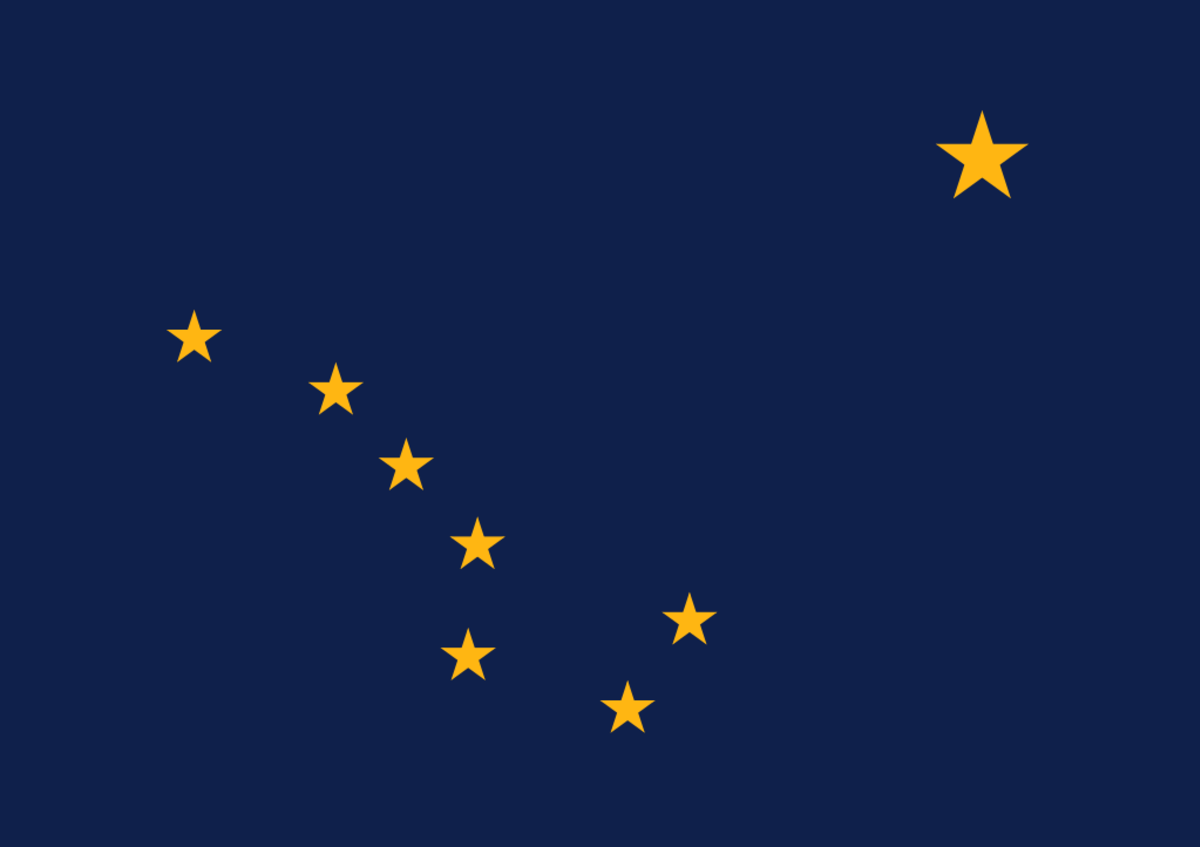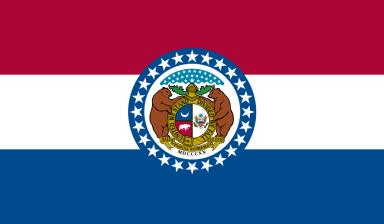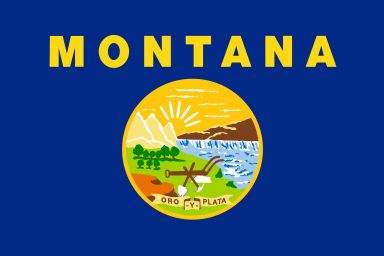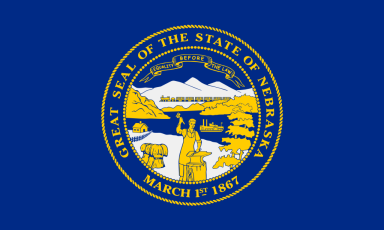Alaska Employment and Labor Laws

Alaska has specific laws covering employment and labor relations to protect its 385,000 workers (as of April 2023), with a vast majority of jobs coming from the non-farm sector at 325,000. Employment law deals with wages, breaks, overtime, discrimination, and wrongful termination. Labor law governs unions, collective bargaining, and disputes like strikes. By covering the fundamentals of these employment and labor laws, this article aims to educate Alaska workers on their rights and protections.
Minimum Wage and Overtime Pay in Alaska
As of 2023, the minimum wage in the state is $10.85 per hour and is adjusted periodically for inflation. The income per day is computed by multiplying all the hours worked in a specific pay period by this number. A workday has eight hours, while a workweek has 40 hours, and work exceeding these is subject to overtime pay. The overtime pay rate is 1.5 times that of basic pay for every extra hour rendered.
The right to receive overtime pay and minimum wage extends to those paid on a commission, piece rate, or other non-hourly basis. When the high volume of work necessitates it, management may also require overtime, but there will be a 1.5x premium. Any wages that are not paid may lead to a wage theft claim before the local Wage and Hour Administration Office.
Time Off and Leaves in Alaska
There is generally no law that grants employees a right to paid time off, vacation leave, sick leave, or severance pay. There are exceptional scenarios, though, that effectively require an employer to let an employee off work:
Jury duty: The law prohibits employers from taking any adverse action against workers who receive a summons to serve as jurors. In this case, the leave is unpaid, and the workers cannot be punished for their participation.
Military leave: This is granted to members of the military who are called to active duty. It also applies to members of the Alaska National Guard or those of another state.
Voting leave: Employers have to give their workers paid time off to vote. The exception is if there is a two-hour gap between the opening of the polls and the start of the employee’s shift or between the closing and the end of the same shift.
Break Times in Alaskan Workplaces
For workers 18 and older, there is no provision under Alaska law for meal breaks. The caveat is that if an employer does provide for a break period, there is an obligation to consider any period under 20 minutes as part of payable hours. It is only after this period is exceeded that the hour is not billable.
Meanwhile, workers aged 14 to 17 should have a 30-minute break for every five hours of work. The period has to be after the first hour and a half of work, but never after the last hour.
Additionally, nursing women who wish to take a break from work to breastfeed their children are covered by the federal PUMP Act and the Fair Labor Standards Act.
Independent Contractors in Alaska
Independent contractors — who are not considered employees by state law — are exempt from various labor and employment regulations in Alaska in terms of work hours, overtime pay, and wages. Independent contractors are one-person businesses working for a different proprietor or the boss of another business. To be categorized as an independent contractor, one has to meet the following criteria:
Has an express contract for services.
Is free from control and direction in terms of how to render services.
Follows IRS requirements.
Obtains all the requisite business and professional permits.
Provides for one’s own tools, operations, and labor costs.
Has the freedom to hire and fire employees.
Has an opportunity for profit or loss.
Moreover, they have to meet at least two of these conditions:
Gives contracted services to two or more different customers within a 12-month period or solicits business from others to obtain new contracts.
Has a separate business location or mailing address from the parties they provide services to.
Is liable for the completion of the work or maintains insurance to answer for said liability.
Recordkeeping for Employers in Alaska
Employers in Alaska have to maintain detailed records of their employees, which must be on file for at least three years. The records must state the name, address, and occupation of each employee, as well as their periodic wages and hours per day and week.
Child Labor Laws in Alaska
Minors are not prohibited from seeking gainful employment under Alaska labor and employment laws. Nevertheless, there are time and hour restrictions for 14- and 15-year-olds when it comes to work hours during and outside of the school year. If school is in session, their school and work hours combined cannot exceed nine per day. Meanwhile, during school breaks, work hours can go up to 40 a week between 4 a.m. and 9 p.m.
There are legal restrictions on the types of hazardous work that minors can be assigned, as certain jobs are considered inherently unsafe for young workers. Typically, these are the jobs that would be risky for adults without proper training and experience. A sampling of these jobs includes:
Is Alaska an At-Will Employment State?
Alaska operates as an at-will employment state. This means employers have the discretion to fire employees for any reason or no reason whatsoever. However, termination is deemed illegal if an employer commits any action that can be considered as waiving at-will employment privileges.
One such action is the existence of an employment contract. If a person is subject to a valid employment contract, its terms would take precedence. Additionally, any provisions that lay out specific reasons for ending a worker’s employment have to be followed in good faith.
An employment handbook may also be viewed as equivalent to an employment contract if it covers the terms and conditions of continued employment and separation from work.
What Qualifies as Wrongful Termination in Alaska?
Wrongful termination exists in Alaska labor and employment law, even if the state is an at-will jurisdiction. It usually occurs when a person is discriminated against and dismissed as a result. Human rights laws in the state make it illegal to discriminate in the following fields:
Employment.
The sale or rental of real property.
Places of public accommodation.
Credit and financing.
Practices of the state or political entities.
Moreover, the law prohibits discrimination in relation to these categories:
Color.
Race.
Sex.
Religion.
Physical or mental disability.
National origin.
In some instances, discrimination based on the following classes is also illegal:
Age.
Pregnancy.
Marital status.
Sexual orientation and gender identity.
Parenthood.
Any time an employer gets rid of a worker or denies them promotion due to discrimination, the worker has a cause of action for wrongful termination. A case for wrongful termination also exists when a laborer has an employment contract or employment handbook that has specific terms and grounds governing dismissal. In addition, the law covers situations where an employer immediately dismisses an employee after the latter gives a 20-day notice of resignation.
Wrongful termination also applies if a worker is fired in a retaliatory fashion after filing for worker’s compensation, filing a complaint for wages, or submitting a complaint regarding unsafe working conditions.
How Do You Report an Employer in Alaska for Wrongful Termination?
Where to Report
The Alaska State Commission for Human Rights is the agency tasked with processing complaints for wrongful termination in the state.
1. The Complaint
The complaint itself has to be drafted and notarized before being filed. It is wise at this point to hire an employment lawyer to make sure that the document is solidly drafted and will stand up to scrutiny. The complaint should be sent to the employer (the respondent), who will be given a chance to rebut the allegations in writing.
The Commission will convene a resolution conference between the involved parties after receiving the complaint and then attempt to reach the bottom of the matter before the formal investigation. It can require attendance through subpoenas and will strive to schedule a time that is convenient for the complainant and the respondent.
2. The Investigation
The Commission will send over an investigator to determine the accuracy of the contents of the complaint. They may interview witnesses and subpoena documents throughout the process. If substantial evidence is found supporting the complaint, the conciliation process will follow. Otherwise, there will be a dismissal.
3. The Conciliation
The conciliation process is similar to a settlement negotiation where both employer and employee attempt to reach a deal agreeable to both parties. The employer will be made to stop the discriminatory practices and may be asked to undergo education courses against discrimination or to provide relief. If the conciliation fails, a conciliation failure will be certified, which will allow the case to proceed to a public hearing. At the end of a public hearing, an administrative law judge will make a decision that may be appealed before the Superior Court.
What is the Statute of Limitations for Wrongful Termination Cases in Alaska?
The complainant has 300 days from the date of the discriminatory action to file a complaint with the Alaska State Commission for Human Rights. Failing to file a complaint by this time will prevent a discrimination case from being investigated.
If the cause of action is based on a written or oral contract of employment, the complainant may go to court within three years of the agreement’s breach.
Meanwhile, if the cause of action is a form of discrimination that is listed under federal law but not Alaskan law, the proper venue is the U.S. Equal Employment Opportunity Commission. The deadline will be 180 days from the date of the discrimination action. It is all the more highly advisable to lawyer up when filing a complaint with the EEOC because these proceedings will be federal in scope.
How Much Can Someone Sue an Employer in Alaska for Wrongful Termination?
Jury awards can average $80,000 to $500,000, giving companies much more incentive to settle instead of going to trial. In certain instances, wrongful termination suits in the state resulted in million-dollar verdicts. In one sexual harassment case decided by the Supreme Court of Alaska, a sum of roughly $1.5 million with some reductions was upheld.
In another lawsuit, a federal court judge in Anchorage awarded $3.4 million to an individual who experienced retaliatory dismissal after trying to expose fraud in the workplace. The awards they received included lost wages, payment for emotional harm, and punitive damages.
Meanwhile, settlement awards are more conservative and usually range from $5,000 to $80,000.
Such compensation for wrongful termination cases in Alaska includes economic and non-economic damages, as well as punitive damages for gross actions. Economic damages include lost wages and other losses with concrete financial value. Meanwhile, non-economic damages refer to losses that cannot be easily quantified in monetary terms, such as emotional distress.
Resources for Employees in Alaska
Getting assistance in Alaska for employment-related matters need not be difficult. As such, this section will discuss various means to help wrongfully terminated workers learn about their legal rights. It also lists resources tackling issues related to employment, like getting food while unemployed and processing immigration requirements for those trying to work legally within the state.
Alaska Free Legal Answers
Alaska Free Legal Answers, which is associated with the American Bar Association, offers online assistance to people who have concerns under civil law. Its lawyers answer people’s questions at no cost via email. In addition to employment law, it tackles matters concerning veterans’ and immigrants’ rights. Note that Free Legal Answers only offers advice and does not provide formal representation in judicial or quasi-judicial settings.
Alaska Legal Services Corporation
Alaska Legal Services Corporation, a nonprofit private law firm operating since 1967, caters to low-income individuals who are pursuing justice. On average, it works with over 7,000 people a year who need help with matters concerning their families, jobs, income, and health. Its lawyers work on a pro bono basis, and the firm also has courses that teach citizens of the state how to go to court on their own.
Occasionally, it organizes events to help members of marginalized groups, like those in the LGBTQ+ community, know their employment and housing rights. It operates 12 offices across the state.
Food Bank of Alaska
It can take a while to find justice when pursuing a case under Alaska employment and labor laws. With this, the Food Bank of Alaska remains an option for those who need to feed themselves while their money is tight, owing to the lack of work during the investigation or litigation process.
The organization, which has been operating across Alaska since 1979, is a member of Feeding America, the largest anti-hunger group in the country with ties to major food manufacturers and grocers. The food bank is located at 2192 Viking Drive in Anchorage.
Friends in Serving Humanity
Friends in Serving Humanity gives emergency food assistance to qualified individuals in Anchorage. The group is run by volunteers who deliver food while avoiding the bureaucratic red tape that normally accompanies government initiatives. The group is reachable at 907-277-0818 by phone and info@fishcharity.org by email.
Expertise.com StaffAuthor
Step into the world of Expertise.com, your go-to hub for credible insights. We don't take accuracy lightly around here. Our squad of expert reviewers, each a maestro in their field, has given the green light to every single article you'll find. From rigorous fact-checking to meticulous evaluations of service providers, we've got it all covered. So feel free to dive in and explore. The information you'll uncover has been stamped with the seal of approval by our top-notch experts.




